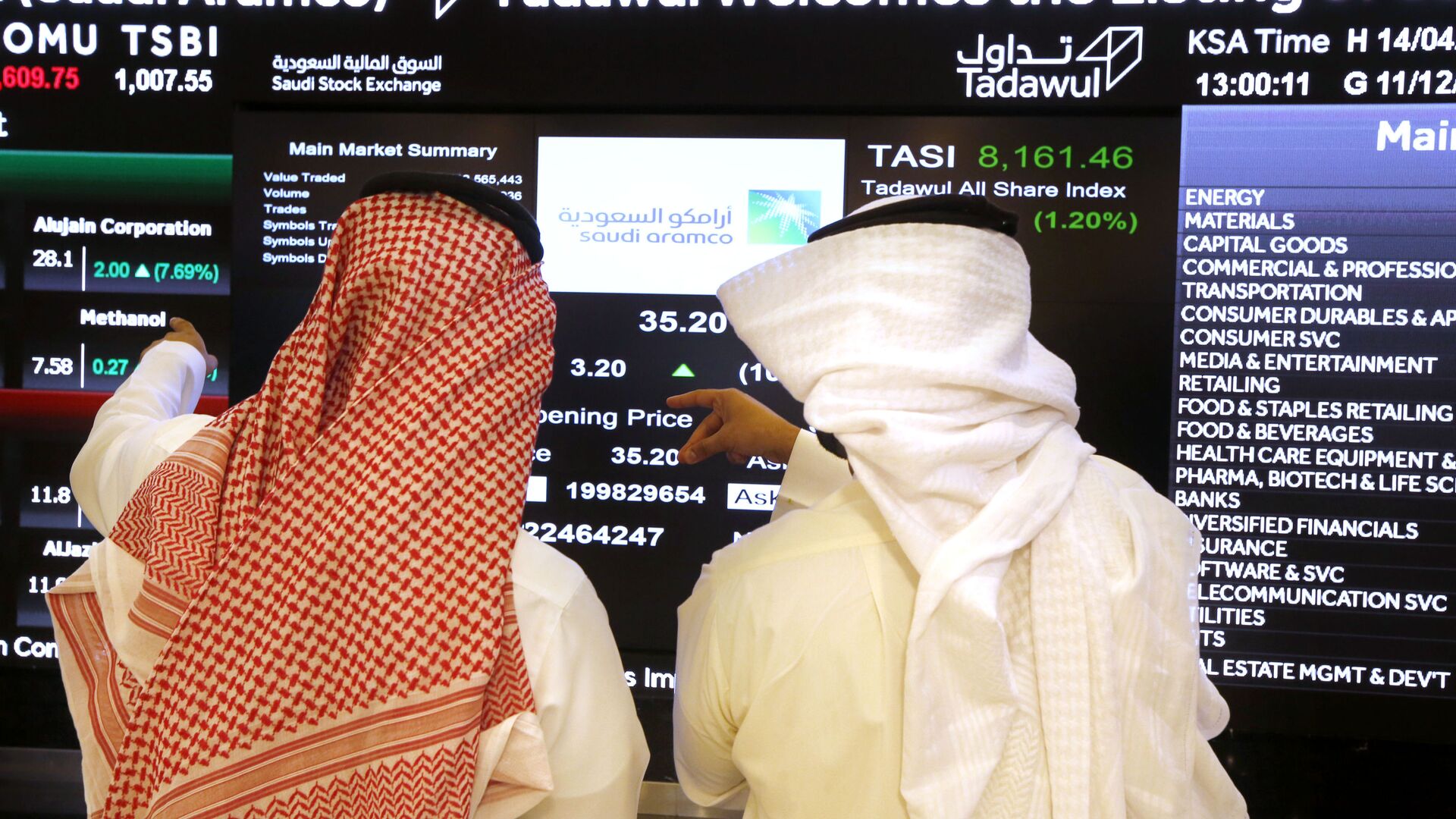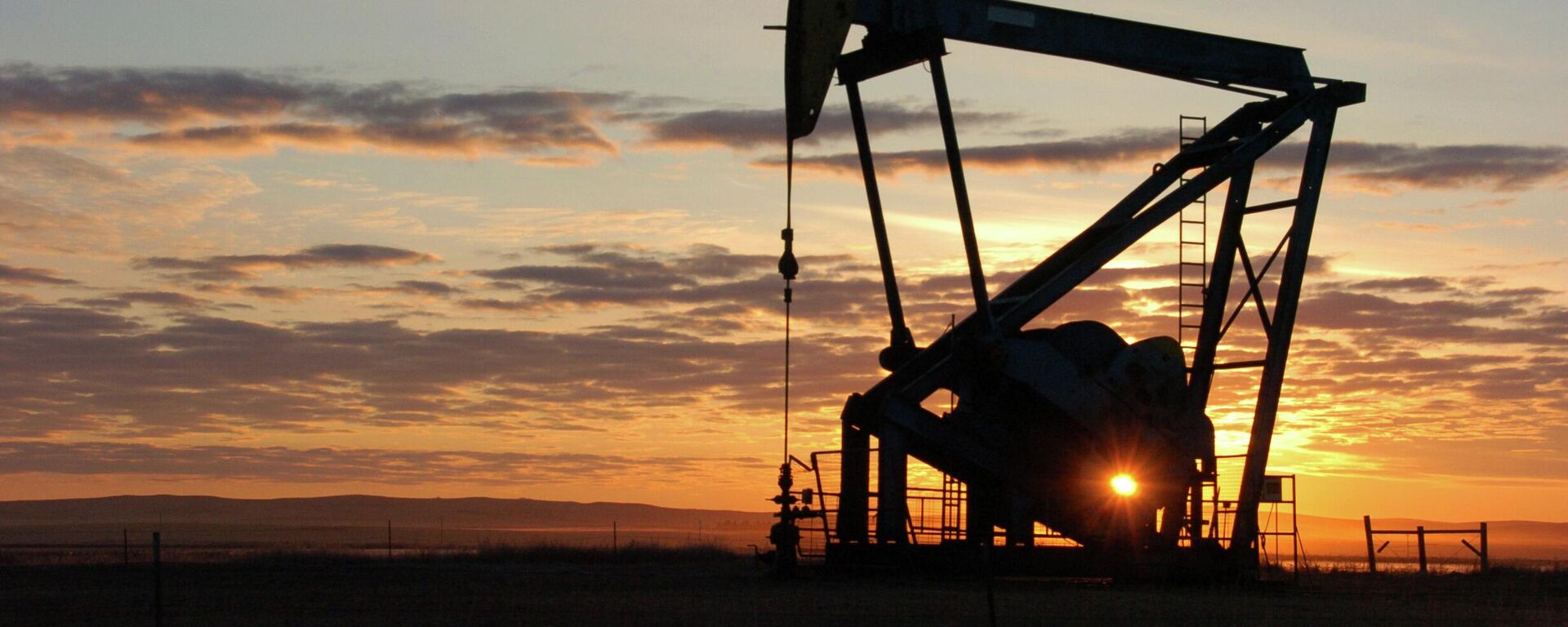Saudis Say 'Green Transition' May Take Generation to Implement
11:11 GMT 26.10.2022 (Updated: 18:28 GMT 26.10.2022)

© AP Photo / Amr Nabil
Subscribe
The so-called ‘green energy transition’ is a United Nations and World Economic Forum-proposed push to move the global economy away from hydrocarbons to reduce carbon emissions. The concept has taken flak both from developing nations and from farmers and other interest groups in the West over the zealousness of local efforts to implement it.
It will take at as much as thirty more years to complete the global transition away from fossil fuels, Finance Minister Mohammed al-Jadaan has indicated.
“There is more recognition now that the thinking about energy and renewables and climate change - and trying to imagine that the transition is going to happen in one day have now become more realistic – that actually the transition will take not only a year, but ten years, possibly thirty years. So we need to invest in our energy security but at the same time not neglect the climate change,” al-Jadaan said, speaking at the Future Investment Initiative (FII) forum in Riyadh on Wednesday.
Al-Jadaan warned that the next six months would be “difficult” for the world due to economic uncertainty, energy and food shortages and the associated instability, and said that Saudi Arabia will continue to provide assistance to the region. At the same time, the minister predicted that the next six years would be “very good” for the oil-exporting Arab Gulf countries.
“Worldwide I think we need to work to ensure that there is more collaboration, cooperation to bring about stability, and that’s what we are doing,” he said.
“We have seen how the world is almost split into [an] optimistic side that [is] looking for the future, those who plan, those who are able to make long-term decisions and prepare themselves for difficult times, are reaping the benefits. And those who haven’t are facing a difficult time. And I can tell you the world is going through a very, very difficult time in general,” Al-Jadaan said.
A day earlier, Saudi Energy Minister Prince Abdulaziz bin Salman slammed the Biden administration over the White House’s move to dip further into its dwindling emergency oil reserves to manipulate global crude prices, and warned Washington that “losing emergency stocks may be painful in the months to come.”
Salman’s warning followed President Biden’s move this month to dump 14 million more barrels of crude from the Strategic Petroleum Reserve, whose supplies have dwindled to their lowest level since the mid-1980s this year amid Washington’s efforts to stabilize gas prices. Earlier, OPEC+ announced that it would be cutting production by 2 million barrels a day beginning in November to balance out supply and prices.
Al-Jadaan’s sentiments at the FII forum were echoed by Mukesh D. Ambani, managing director of Reliance Industries Limited, an Indian energy, telecommunications, textiles and retail giant. Ambani pointed out that as things stand, renewables only account for about 10 percent of global power generation, and that investment in traditional energy sources need to continue to ensure growth.
“On one hand, with rising aspirations and growing urbanization, we must meet the energy, food, water and other basic needs of 7.5 [billion] people. On the other hand, and simultaneously, we must save our beautiful planet from the climate crisis,” Ambani said. He pointed out that India has plans to meet half of its energy needs using renewables by 2030, including using clean hydrogen.
The businessman also said there were four global “transformative transitions” taking place at the moment: “energy transition from fossils to renewables, technology transition from physical to digital, economic transition from west to east, and demographic transition from aging nations to young nations.”
The UN and WEF-sponsored green transition initiatives have hit a major setback over the past year amid a global energy crunch that began last fall, attributed to growing energy demand, global energy competition between Europe and Asia, colder than usual weather, and lower-than-expected returns on investment in alternative energy sources such as wind and solar power.
Since the spring, efforts by Brussels to cut Europe off from Russian oil, gas, electricity and coal supplies have exacerbated the crisis, with energy prices soaring and European officials and industrial giants fearing their nations may not have enough natural gas to last through the winter. The crisis has prompted some countries to reverse course on their green initiatives, putting coal-based power plants back online and scrapping plans to mothball nuclear power reactors.





